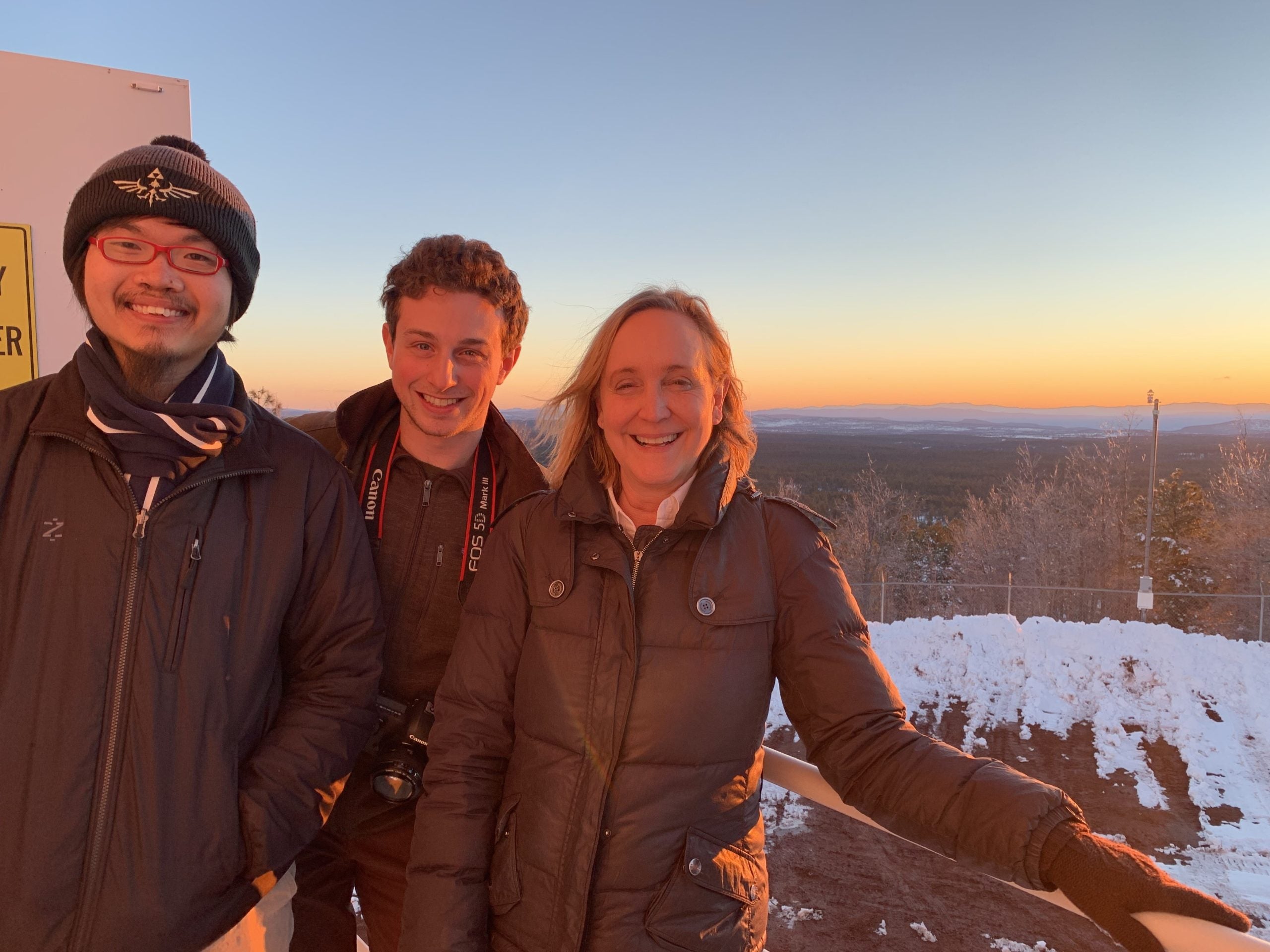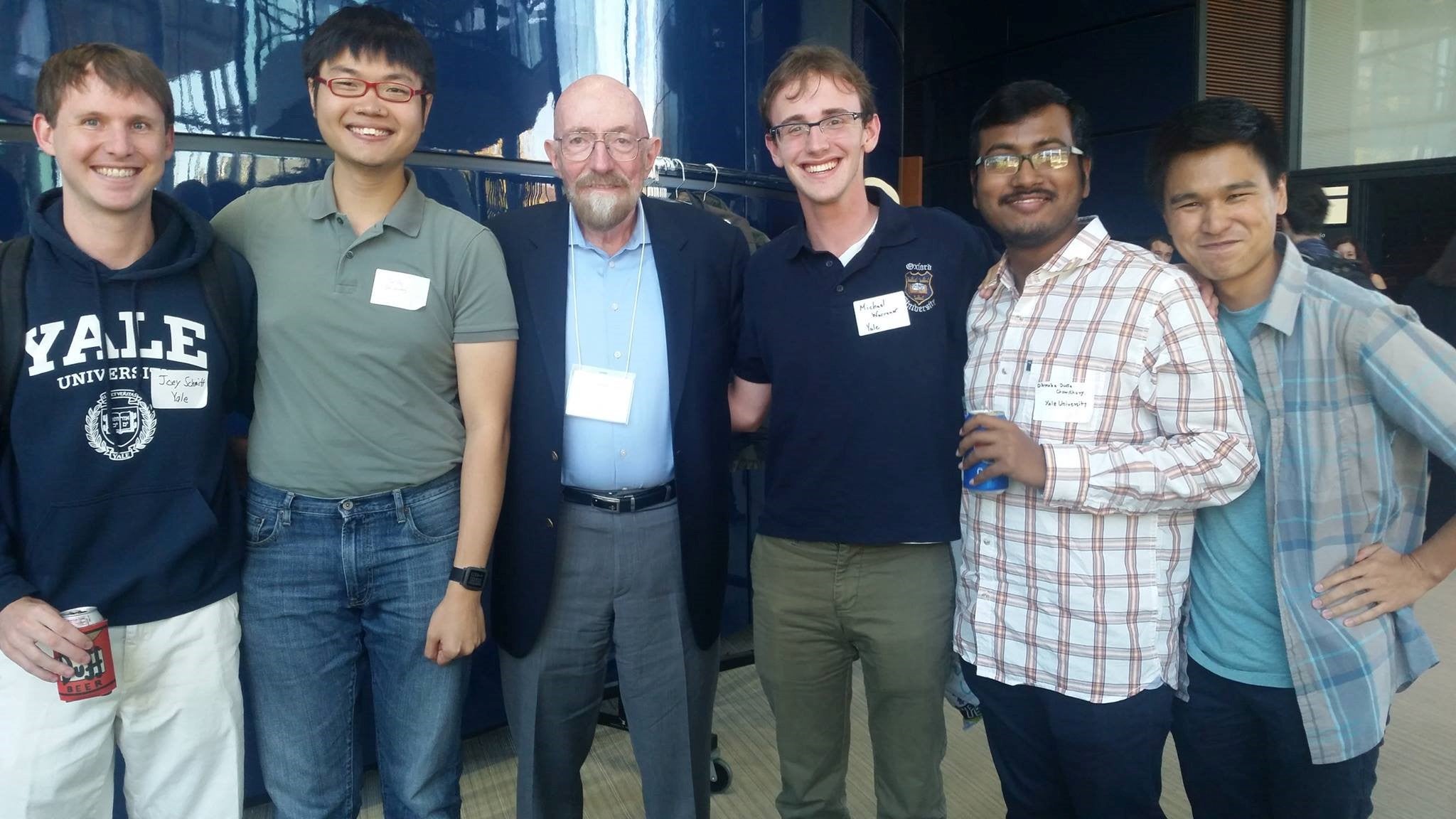Unravelling the mysteries of the universe
June 07, 2022
Joel with fellow graduate student Sam Cabot and Prof Debra Fischer (discoverer of many an extrasolar planet!) at the Lowell Discovery Telescope at sunset
Does life exist outside the solar system? How do stars and planets form and evolve? What do black holes look like? These are but some of the mysteries of the universe that astrophysicists / astronomers set out to unravel.
The passion to explore some of these big questions led alumnus Dr Joel ONG, currently a Graduate Teaching Fellow at Yale University, to take up NUS Physics and the Special Programme in Science (SPS). His undergraduate studies and the exposure to multidisciplinary science under SPS gave him valuable opportunities to deep dive into scientific research.
And while the societal value of astronomy / astrophysics might not be immediately obvious, Joel shares that these disciplines nevertheless serve important roles.
He says, “Astronomy serves as both an outlet for the scientific imagination, and as a concrete way of satisfying our intellectual curiosity… astrophysics, on the other hand, provides the interpretive ‘scaffolding’ to support these questions and answers.”
Indeed, Joel’s area of research – asteroseismology, or the study of stellar vibrations – is a relatively new part of this ‘scaffolding’ and was the subject of this year’s Kavli Prize in Astrophysics.
Beyond technical innovations, physics is often also essential to technology as well. As an example, Joel cites how the general theory of relativity, originally an abstract mathematical construct, became necessary for the correct functioning of satellite geolocation systems like GPS.
In this interview piece, Joel shares how the strong foundation he acquired in theoretical physics and applied mathematics opened his eyes to a different perspective and a different set of analytical tools – better enabling him to solve some problems which lie in the blind spots of a more traditional approach in astronomy.

At the Gruber Cosmology Prize Ceremony at Yale University
He adds, “The interdisciplinary environment of the University Scholars Programme, and my study abroad experience under the Yale Visiting International Students Programme (which led to my PhD in Yale) were also very formative experiences which gave me practice in synthesising knowledge across disciplines, and identifying these epistemic blind spots in the first place.”
Earlier this year, Joel was awarded the NASA Hubble Fellowship at the Institute for Astronomy, University of Hawaiʻi at Mānoa. He will take up the fellowship in September 2022.
Watch Joel’s sharing here.


